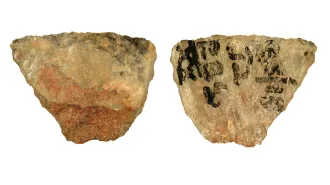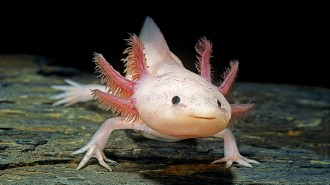Scientific Interference: Complaints At EPA
A large number of Environmental Protection Agency scientists report intimidation by higher ups in their agency. Many also charge that their superiors have asked them to alter either research findings or their interpretation of data. At least a few claim their managers have at times prohibited them from publishing findings in peer-reviewed journals or temporarily sat on data so that research findings would not be released in a timely fashion.
Such reports suggest a systematic attack on scientific integrity in an agency charged with protecting human health and the environment, Francesca T. Grifo testified yesterday. A senior scientist with the Union of Concerned Scientists, she shared survey results at a hearing convened by the Senate Committee on Environment and Public Works. The situations she described summarize questionnaire responses – and in some instances, essays or in-depth interview – obtained from 1,586 EPA scientists last summer.
UCS is a public-interest advocacy group best known for promoting causes like sustainable energy and social policies that would limit the release of greenhouse-gas emissions. But lately, this group has also been investigating the extent to which the Bush White House has attempted to muzzle scientists whose findings don’t support administration policies.
A few high-profile cases came to light in the past few years. Probably the most notable: NASA’s attempt to keep climate scientist James Hansen at its Goddard Institute for Space Studies in New York City from mouthing off about society’s need to reduce greenhouse-gas emissions. Once Hansen spilled the beans about his refusal to submit to his agency’s attempt to review any lectures, papers, federal-website postings, or interviews with reporters to New York Time reporter Andrew C. Revkin, Hansen became a cause célèbre.
At a congressional hearing last year, Hansen noted that his bosses weren’t the only politicos interested in ensuring he towed the party line. The Goddard researcher reported that: “Review and editing of scientific testimony by the White House OMB [Office of Management and Budget] seems to now be an accepted practice. The explanation I was given for why budgetary people should be allowed to review and edit scientific testimony was that NASA plans need to be consistent with the Administration’s budget.” Hansen said NASA officials indicated “that people at NASA Headquarters believe that NASA must ‘play ball’ with OMB if it wishes to be treated well in its annual funding.” However, Hansen argued, “It seems to me that this raises constitutional questions, because it is my understanding that the Constitution provides the power of the purse strings to Congress, not the Executive Branch of our government.”
The more UCS staffers probed such circumstances, the more they heard rumors that Hansen and a few others were anything but isolated cases. In an attempt to document how prevalent “political interference” with science was at federal agencies, UCS began surveying researchers; not only at the U.S. Fish and Wildlife Service, but also the National Oceanic and Atmospheric Administration’s national marine fisheries service, and the Food and Drug Administration. They also surveyed climate scientists working in seven different agencies.
The new EPA survey, the fifth in the UCS series, brings to 3,400 the number of federal scientists who have weighed in. Of the 5,500 EPA researchers sent questionnaires, 29 percent responded. Those who answered, Grifo reports, represented all 10 of the agency’s regional offices, more than a dozen research laboratories, and “every scientific program office at EPA headquarters.”
Examples of what the respondents reported from personal experience:
– 60 percent (889 scientists) had been subjected to political interference during the past 5 years
– among those with more than 10 years tenure at EPA, 43 percent (409 scientists) said the rate of interference was greater in the last five years than in the five years prior to that
– seven percent (94 scientists) reported being “directed to inappropriately exclude or alter technical information from an EPA scientific document”
– 31 percent (394 scientists) had witnessed “statements by EPA officials that misrepresent scientists’ findings”
– 13 percent (153 scientists) were pressured to ignore impacts of a regulation on sensitive populations, and
– 43 percent (516 scientists) knew of instances where EPA political appointees had inappropriately involved themselves in scientific opinions and 560 knew of instances where political appointees from other federal agencies had inappropriately involved themselves.
There was more, equally disturbing. If you’re up for it, read the whole 108-page report that Grifo’s organization prepared. While you’re at it, read about interference identified in the previous surveys.
What we don’t know, in listening to Grifo’s litany of apparent transgressions, is whether the scientists’ reports document true political interference. Or whether – at least sometimes – valid scientific or other reasons prompted officials to not rush some data to publication.
However, the large number of scientists who appear to have witnessed questionable behavior certainly does give pause.
There’s little hope that sound health and environmental policy will emerge if that policy is built upon shoddy or cherry-picked science. The instances Grifo described make a strong case for calling in outside auditors to investigate whether political interference with science at EPA – and other agencies – is truly as deeply rooted and pervasive as Grifo’s data would suggest.
Let’s hope an isolated Senate hearing is not the last, much less best, investigation of these charges.







